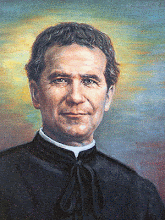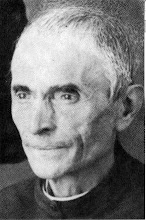
The following comes from Prayer and Perspective:
The practice of praying for the dead actually predates Christianity. In 2 Maccabees 12: 41-45, Judas offers prayers and sacrifices for his fallen comrades to make “atonement for the dead that they might be absolved from their sin.” Some argue that the books of the Maccabees are not inspired scripture. Leaving that argument aside for now, we can at least look at them as historical books detailing accepted pious practices of God’s people some 300 years before Christ.
If that is the only place in the Bible where we find any reference to purgatory, many Protestant Christians argue, then that is a weak support for such a practice. Fortunately, we know as Catholics that all of our doctrines are indeed found in the Word of God, as is the doctrine of Purgatory. Hence what follows is a biblical understanding of the Catholic doctrine of Purgatory.
The book of Genesis recounts for us the far reaching repercussions of Adam and Eve’s disobedience in the Garden. This sin, we find, brought about four consequences which I will summarize here (Gen 3: 16-24):
First, their sin brings about disharmony between persons. God tells Eve that both her relationship to her husband and children will now be characterized by pain and mistrust (Gen 3:16). Further, God has to make garments for man and woman because now, as the text implies, they feel shame (Gen 3:21).
Second, their sin brings about disharmony between man and creation. God tells Adam that he will produce the fruit of the earth with toil and difficulty (Gen 3: 17). Even the ground itself is cursed because of their sin (Gen 3: 17).
Third, their sin brings about disharmony between man and himself. He no longer has spiritual control over his body; thus, his body returns to the dust of the ground (Gen 3: 19). Adam and Eve are no longer able to receive everlasting life (Gen 3: 22).
Lastly and most importantly, sin brings disharmony between God and man. This consequence results in mistrust and fear of God (Gen 3: 10), and, worse, spiritual death. Without God, neither physical nor spiritual life can be sustained (Gen 3: 19, 24).
The first three disharmonies mentioned above are called ‘Temporal punishments due to sin.’ Temporal refers to things pertaining to this world. The last disharmony, the disharmony with God, is called eternal punishment, because it refers to things pertaining to the eternal world with God.
All four of these disharmonies are healed by Christ. The only healing we experience fully in this life, however, is from eternal punishment–or disharmony with God. That’s why Christ is the One Mediator between God and man.
It should be clear that we don’t experience a full healing from the temporal disharmonies/punishments as Christians, because we still struggle. We experience suffering, illness, catastrophes, and even death. Yet, Christ heals these problems, too, it’s just that we don’t experience the full healing in the temporal sphere until He returns.
Until then, we are called to struggle for His Kingdom. As St. Paul puts it, “But we have this treasure (the healing grace of salvation) in earthen vessels, to show that the transcendent power belongs to God and not to us. We are afflicted in every way but not crushed; perplexed, but not driven to despair; persecuted, but not forsaken; struck down, but not destroyed; always carrying around in the body the death of Jesus, so that the life of Jesus may also be manifested in our bodies.” (2 Cor 7-10)
To overcome these temporal disharmonies, we are called to cooperate with Christ’s power in grace so as to bring about the healing with Him in these areas. This is why we are called to pray, fast, and alms give so as to forgive our neighbor’s sins and be forgiven, and to receive the reward promised by our heavenly Father that we will once again regain temporal peace/harmony on earth and in heaven (Mt 6:5-23).
What happens if we die and are reconciled to God (the eternal punishment for sin), but have not entirely cooperated with grace to overcome the temporal punishments for sin? St. Paul gives us the answer in 1 Cor 3: 12-16. He says that after death, our works will be tested “as though by fire, and the fire will test what kind of work we have done,” and we will suffer loss, though we will still be saved (1 Cor 3:13-15).
This is a very clear passage regarding the purification (which we call purgatory) that takes place after death. This fire purifies us from our temporal disharmonies mentioned above, if we die without having them entirely purified in this life.


















No comments:
Post a Comment